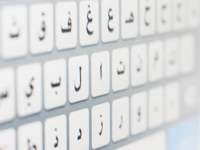 Last week, Marc Lynch (also known as Abu Aardvark), an associate professor of political science and international relations at The George Washington University and well-known writer and blogger about the Middle East, gave a fantastic presentation to my bureau at the State Department. He was kind enough to allow me to summarize his presentation and share it with the wider community.
Last week, Marc Lynch (also known as Abu Aardvark), an associate professor of political science and international relations at The George Washington University and well-known writer and blogger about the Middle East, gave a fantastic presentation to my bureau at the State Department. He was kind enough to allow me to summarize his presentation and share it with the wider community.
His presentation, and the following discussion, focused on his personal experience as a blogger, including his engagement with counterpart bloggers in the Middle East, and on the general history and landscape of blogging in the Middle East.